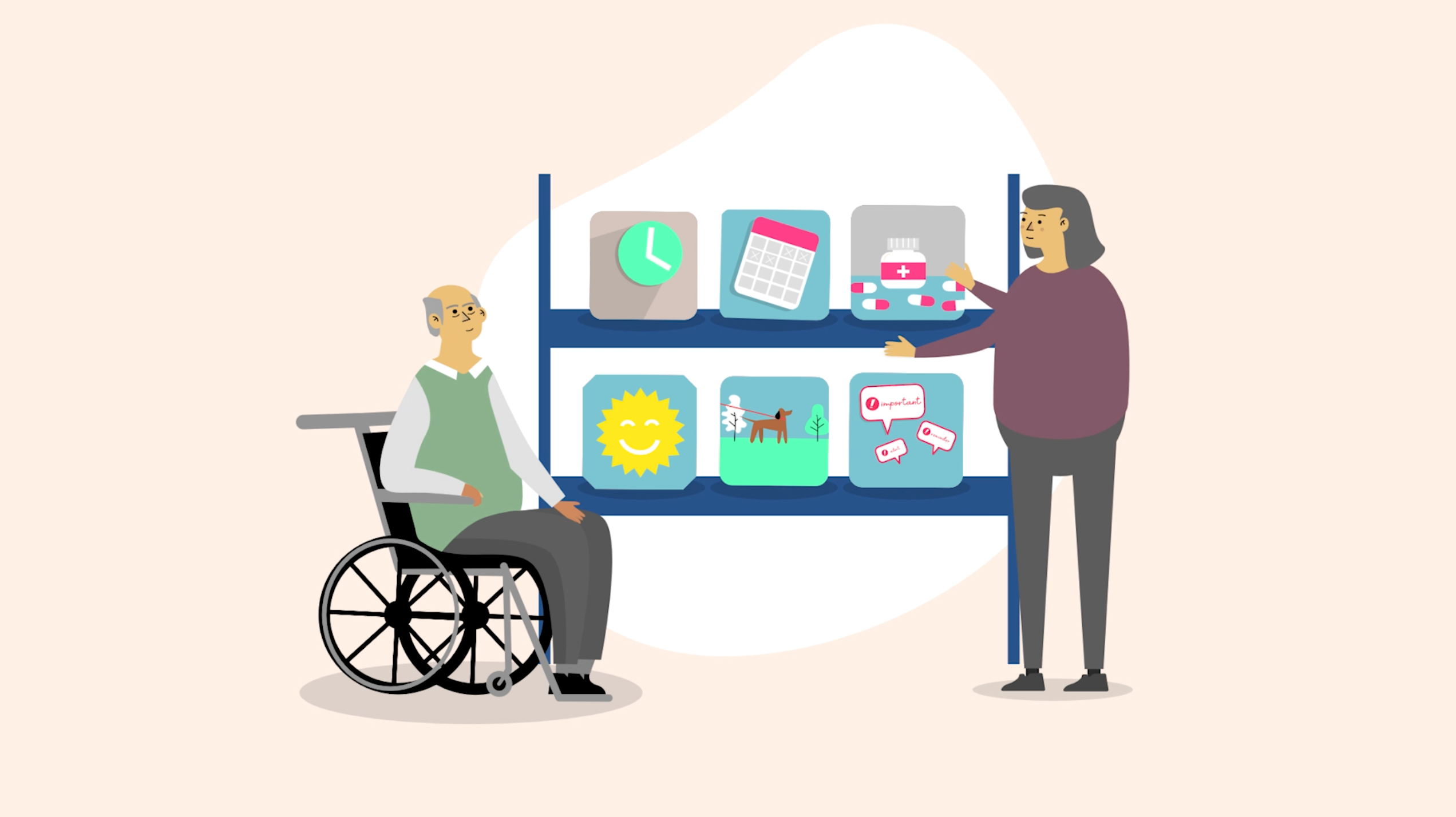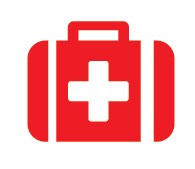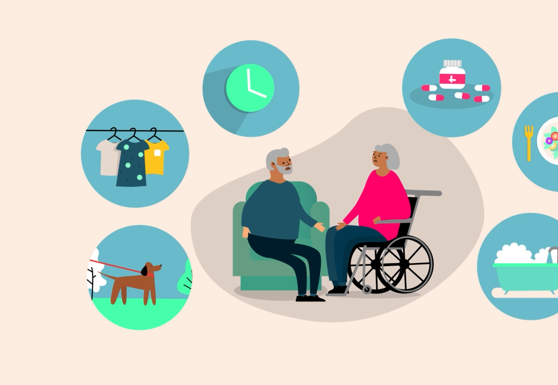Managing medication
Supporting someone with taking their medication can be daunting. They might be taking several different types or you may be worried about making sure they have the correct dose. On this page, you can find some suggestions of different ways to help you manage this responsibility.
Knowing where to start
This animated video can help you cope with the challenges involved when you’re managing someone’s health and medication needs. On this page, we also offers tips and ideas to help you save time, feel more organised, and know when to get further support.
Get professional medical support when needed
If you're worried that someone you care for has a health issue that is becoming difficult to manage or if they're dealing with unreasonable levels of pain or discomfort, do seek immediate medical help. In the event of an emergency, don't hesitate to call 999.
There are a number of organisations that can help you get support at any time.
- The NHS 111 service is available for anyone who is feeling unwell and needs a telephone health assessment – just dial 111. Contact your GP for advice on how to deal with any symptoms of a health issue and the treatment available. Their online service is also available at https://111.nhs.uk/
- If you need an emergency prescription – for example you've run out of medication – visit https://111.nhs.uk/guided-entry/medicines-help
- Samaritans are open 24 hours a day, 365 days a year – you can call free anytime, from any phone on 116 123 or email jo@samaritans.org
- Social services: If your normal office is closed and you need urgent help, there will be an emergency duty team you can contact. You could search online for this by typing in the search term: "find emergency duty team" and the name of your local council.
- In Northern Ireland, emergency social work contacts can be found by going to www.hscni.net where you can identify your own local Health and social Care Trust website.
Organising medication
If you want to know more about a particular medication and its side effects, it's best to avoid doing a random search online which may throw up inaccurate, out-of-date, disturbing or misleading guidance. The NHS site has an A-Z directory where you can look up a particular medication and find out reliable information about its side effects: A-Z of medicines.
Medication organisers can be very helpful and there are a variety of different types. An automatic medication dispenser can be used to dispense the right dose at the right time. This can also remind a person to take their medication at a specific time, reduce the risk of double dosing and send you a message when medication has been taken or missed.
Jointly can help with this. This is an app designed by carers for carers which helps you to coordinate caring responsibilities with other family members. One of its many benefits is its assistance with managing medication. You can have records to keep track of current and previous medication taken. You can also upload an image to help recognise a medication. Find out more at: https://jointlyapp.com/

Let your doctor know you're a carer
Making sure that your own doctor knows about your caring responsibilities can open the door to further support. It is important that they're also aware that you might be under additional strain at times.
Your doctor will be able to record that you are a carer on your medical records so that you can receive free flu jabs and perhaps be prioritised for other vaccinations. You may also be able to apply for a medical exemption certificate for free NHS prescriptions if someone has a particular condition or needs your assistance in order to go out. You can find out more about the criteria and how to apply here: https://www.nhsbsa.nhs.uk/check-if-you-have-nhs-exemption/medical-exemption-certificates
Medication aids are designed to help people take the correct dose of medication at the right time. These could be tablet boxes categorised by day and dispensers which issue the correct dose at a specified time.
You can find out about other devices and tech designed to help with monitoring someone's health on this page: Smart tech and handy devices for the home | Carers UK
Many people consider continence issues to be part of getting older and something you cannot change. But in many cases, with the correct management and treatment plans in place, people can regain their continence or manage their symptoms so that their quality of life can be very much improved.
We offer some useful further guidance on our page: Continence care | Carers UK.
What else can you do?
Here is a summary of some of the best ways you can support someone with a medical condition:
- Don’t hesitate to seek medical advice if someone you care for is in pain or has discomfort, even if they have already been given a treatment option such as a catheter. If the treatment or product is not working, there are alternatives that should be explored.
- For specialist support and guidance, you could contact a condition specific charity. You may find our conditions hub helpful for reference.
- Speak to others in a similar situation. Charities often have forums (our is called Carers Connect) and many offer free helplines and specialist information.
- St John Ambulance offer lots of advice and video guides about administering first aid when needed. We have included a sample of these below. In addition, here are some helpful slides created by St John Ambulance which provide an overview.
- Look after yourself too. It's crucial you're getting the rest and support you need as well. Do seek professional support with your doctor and by having a carer's assessment if your quality of life is being affected or you're struggling to cope.
- It's easy to injure yourself while caring for someone – find out how to lift and move someone more safely by reading our guidance: Looking after your body | Carers UK.
Are you familiar with the basics of first aid?
It can be frightening to think about how you would help a loved one or friend in a crisis and many of us try not to imagine such a scenario. But when you're relied upon for help in many ways, it might be reassuring to remind yourself of the steps to follow should an accident or health emergency happen out of the blue.
This video, produced by St John Ambulance, shows you what you should do if you need to place someone in the recovery position.
Some helpful first aid guides
There are lots of other practical 'what to do' video guides produced by St John Ambulance including:
How to do CPR: watch the 4 minute video
What to do if someone has a seizure: watch the 3 minute video
How to treat a fracture and fracture types: watch the 3 minute video
How to treat a burn: watch the 3 minute video
How to treat a minor wound and prevent infection: watch the 1 minute video
What should you have in your first aid box and what's needed for certain injuries?: watch the 2 minute video
For more information and practical support for different conditions, see the St John Ambulance website: sja.org.uk/get-advice/
Talk to your doctor

Speak to your GP about your caring role: Talking to your GP | Carers UK
Build your network with Jointly

Find out about Jointly:
The mobile app to help with caring

